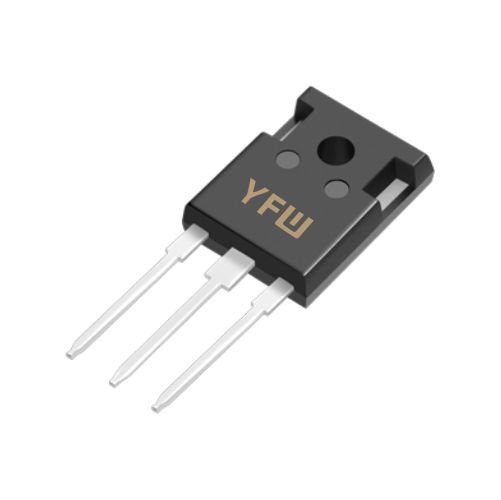Semiconductors, at their core, are integrated circuits (ICs) that control the flow of electricity in electronic devices. Their ability to switch currents on and off at nanosecond speeds—enabled by transistors—forms the backbone of computing, communication, and automation. From the first transistors in the 1950s to today’s 3-nanometer chips, semiconductors have fueled Moore’s Law, doubling transistor counts every two years and revolutionizing performance. This relentless miniaturization has condensed supercomputer capabilities into handheld devices, enabling innovations like 5G, IoT, and autonomous vehicles.
The global semiconductor market reflects this transformative power. After hitting $627 billion in sales in 2024, it is projected to surge to $697 billion in 2025, driven by generative AI, data centers, and edge computing. By 2030, the industry aims to reach $1 trillion, underscoring its status as the “new oil” of the digital economy.
Semiconductors are omnipresent, embedding themselves into every facet of modern life:
Consumer Electronics: Smartphones, laptops, and wearables rely on semiconductors for processing, connectivity, and energy efficiency. YFW’s ultra-fast recovery diodes, such as the US1MW series, optimize power conversion in these devices, ensuring rapid switching and low energy loss.
Automotive: Electric vehicles (EVs) and autonomous systems depend on semiconductors for battery management, sensor integration, and real-time decision-making. YFW’s high-voltage diodes and MOSFETs withstand extreme conditions, supporting the reliability of automotive electronics.
Energy Transition: Solar inverters and wind turbines use semiconductors to convert renewable energy into usable power. YFW’s silicon carbide (SiC) devices and rectifier bridges enhance efficiency in energy storage systems, aligning with global sustainability goals.
Defense and Aerospace: Precision-guided missiles, drones, and avionics rely on semiconductors for navigation and control. Their role in military technology has made them a geopolitical flashpoint, with nations competing for dominance in chip manufacturing.
While semiconductors drive progress, the industry faces daunting challenges:
Supply Chain Vulnerabilities: Geopolitical tensions and pandemics have exposed reliance on concentrated manufacturing hubs. For instance, the U.S.-China trade war has disrupted access to advanced chip-making equipment, prompting investments in domestic production like the CHIPS Act.
Technological Complexity: Shrinking transistor sizes (now below 5 nanometers) demand cutting-edge lithography and materials science. Innovations like 3D packaging and AI-driven design tools are critical to overcoming physical limits.
Talent Shortages: The industry requires specialized expertise in materials science and process engineering. Collaboration between academia and industry is essential to bridge this gap.
Sustainability Pressures: Semiconductor manufacturing is energy-intensive. Companies are adopting green practices, such as using gallium nitride (GaN) for efficient power conversion and optimizing water usage in fabs.
As a leading semiconductor manufacturer, YFW addresses these challenges through reliability, innovation, and customer-centric design:
Product Excellence: YFW’s diverse portfolio includes diodes, MOSFETs, and IGBTs, engineered for high performance in harsh environments. For example, the R4000 diode withstands 2.8kV reverse voltage, making it ideal for industrial and automotive applications.
Technical Expertise: With over a decade of R&D, YFW leverages advanced packaging and materials to improve efficiency. Their ultra-fast recovery diodes (e.g., US1MW) reduce switching losses by 30%, critical for high-frequency applications like 5G base stations.
Global Collaboration: YFW partners with international clients to deliver customized solutions, ensuring seamless integration into complex systems. Their commitment to quality and scalability has positioned them as a trusted supplier in sectors ranging from medical devices to renewable energy.
Looking forward, semiconductors will underpin emerging technologies:
AI and Edge Computing: Lightweight AI chips for smartphones and IoT devices will require advanced packaging and energy-efficient designs. YFW’s focus on miniaturization aligns with this trend, enabling smarter, more responsive edge systems.
Sustainable Manufacturing: The industry is shifting toward eco-friendly processes, such as using AI to optimize energy consumption in fabs. YFW’s investments in SiC and GaN technologies reflect this commitment to reducing carbon footprints.
Geopolitical Reshaping: Diversified supply chains and regional hubs will mitigate risks. YFW’s global presence and partnerships ensure resilience in an increasingly fragmented market.
Semiconductors are not just components—they are the lifeblood of innovation. From powering everyday gadgets to enabling breakthroughs in AI and renewable energy, their impact is immeasurable. As the industry navigates challenges like supply chain disruptions and technological limits, companies like YFW Microelectronics lead the charge through relentless innovation and unwavering commitment to quality. In a world where connectivity and sustainability are paramount, semiconductors will remain the driving force shaping our future.
YFW Microelectronics—Powering Progress, One Chip at a Time
